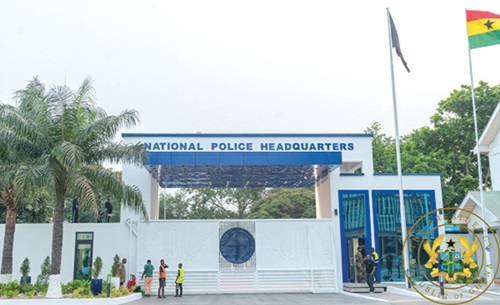The release of the Afrobarometer Round 10 (2024) findings points to what I describe as a “crisis of confidence in institutions.
” Our institutions face two challenges – a) low trust; and b) increased perceptions of corruption. But anyone who has followed Afrobarometer closely will admit that this decline did not just happen.
Rather, the recent findings confirm a worrying trend some of us have been highlighting for some time now. In my recent book, 5Presidents, 8Elections, 30Years Later: How Ghanaians See Their Democracy, this crisis of confidence in institutions was one of the six challenges I noted as facing Ghana’s democracy.
Institutions are not only critical to a democracy’s architecture but are also at the heart of what ensures positive development outcomes. Daron Acemoglu and James A. Robinson’s book “Why Nations Fail:
The Origins of Power, Prosperity and Poverty” is an excellent piece of work on the critical importance of institutions. Another book worth reading on this subject is one by Douglas North titled “Institutions, Institutional Change and Economic Performance.”
All this is simply to say there is enough evidence supporting the assertion that effective institutions matter and no nation can prosper without strong and effective ones.
What Next?
With forty days to the next election, I am under no illusion that a crisis of confidence in institutions will gain traction for the various political campaigns.
The campaign to win the 2024 elections, in my opinion, is the current preoccupation of candidates and political parties.
To an extent, I can understand why this is the case. After all, I am sure on the campaign trail, in trying to win the hearts and minds of voters, the crisis of confidence in institutions may not really be a winning message but rather how the everyday bread and butter issues will be addressed.
Fair point. But can we stop for a moment to ask ourselves how this crisis of confidence in our institutions can potentially undercut how effectively the bread-and-butter issues can be addressed?
In addition, political party manifestos are already out and continue to be the framework shaping campaign messages. At this point, it may seem too much of an unreasonable demand to ask political parties and candidates to retool their messages.
This is true especially if they do not perceive this issue as one that wins votes. This is where I also rue a missed opportunity.
As far back as February 2024, the Democracy Project, an initiative I direct, had a fruitful discussion with representatives of registered political parties, including the Movement for Change.
At the meeting, the project shared the six key challenges to Ghana’s democracy and urged the parties to include in their election year manifestos, a Democracy Pledge.
In our plea, the pledge was an opportunity for the parties to a) recognise these key challenges; and b) propose specific measures on how they can be addressed and overcome.
Sadly, none of the parties included this Democracy Pledge in their manifesto. Perhaps, it is a conversation they are willing to reengage in post-election because the question to ask ourselves is this – if not now, then when will we recognise that we must reverse this trend?
We have had lengthy conversations about our institutions. I do not doubt that the findings released by the Afrobarometer will continue to dominate the media and other public spaces over the next couple of days.
Dialogue is important and so is creating public awareness about this critically important issue. But beyond the conversations and public dialogues is the need for some concrete steps to be taken to reverse this trend.
For me, the greater burden of restoring trust in our institutions lies with their custodians. They must, as a matter of both necessity and urgency, engage their many stakeholders to address the question: what can we do to restore public trust and confidence in us?
Learning opportunities
Parliament embarked on a rewriting of its standing orders and completed that exercise in 2023. I wrote about it a year ago commending the efforts and pointing out that it offered hope for a) a stronger parliament; b) greater oversight of the executive; c) greater transparency in parliament’s work; and d) a stronger role for minority parties.
Beyond the acrimony sometimes witnessed because of the makeup of the 8th parliament, such concrete steps, I believe, can help parliament restore some of the lost confidence and trust citizens have in the institution.
Also, last year, the judiciary, under the leadership of the Chief Justice, announced a reform initiative titled “LEADing JUSTICE.” Again, it is one of those reform efforts, I believe, if successfully implemented, can help address this crisis of confidence.
Perhaps there is even more that the two institutions mentioned can do. Will other institutions follow in their footsteps?
The writer is the Project Director, Democracy Project

